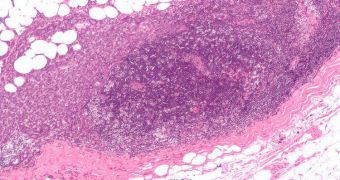According to a new official statistic, it would appear that the number of cancer cases has increased in Europe over the past decade. However, the same document shows that mortality rates are declining.
In other words, treatments healthcare experts apply to their patients appear to be functioning, seeing how less people die from the terrible disease.
Partially to thank for this are improvements in the field of treating the disorder, as new therapies are made available for many types of cancer every single year.
Additionally, new diagnostics methods make it a lot easier to detect the condition, which means that more cases than ever before are caught before cancerous cells can spread throughout the body.
But the statistics also reveal a rise in the incidence of cancer cases, which means that whatever factors help contribute to the disease are gaining importance in the general population.
The numbers show that the incidence of the condition rose by about 20 percent between 2002 and 2008, from 2.1 million to 2.5 million cases.
The data are presented in a special issue of the ECCO official publication, the European Journal of Cancer. ECCO is the European CanCer Organization, which plays a critical role in cancer prevention and treatment.
The team behind the study says that the situation will only get worse before it gets better. They explain that cancers caused by carcinogenic factors in the environment, such as a workplace, are very likely to increase over the coming years.
“Both private companies and governments tend to take shortcuts in occupational safety controls during periods of economic hardship, and this is especially true for small companies and in developing countries,” says Dr. José M. Martin-Moreno.
The expert, who is based at the University of Valencia in Spain, is the author of the new research paper. The bad news, he says, don't stop here.
Because of the current crisis, government and public donations are likely to decrease considerably over the coming years, as are research funds alloted for this type of work by the pharmaceutical industry.
“Governments could also play their part by taking the opportunity to levy higher taxes on tobacco, alcohol and other unhealthy goods like trans fats or processed sugar and channelling the revenue thus derived towards job-creating disease prevention and social welfare programmes,” Dr. Martin-Moreno adds.
He is speaking about the measures that governments could take in order to ensure that cancer funding does not drop to critically low levels, e! Science News reports.

 14 DAY TRIAL //
14 DAY TRIAL //